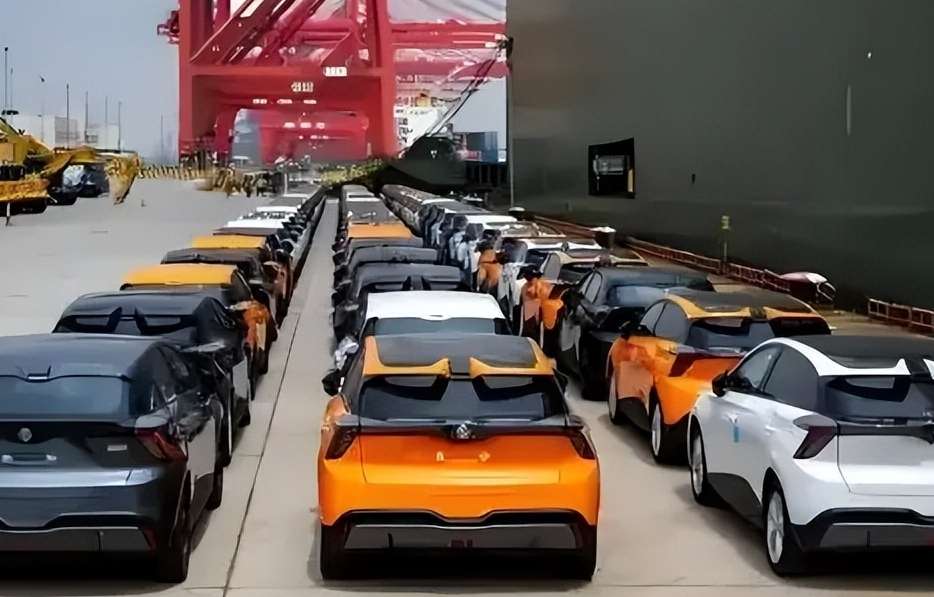EU Eyes China's NEV Sector
Advertisements
Advertisements
In the arena of global commerce, the competition for technological supremacy has become increasingly fierce, especially in the burgeoning sector of electric vehicles (EVs). A recent precipitating event has been the European Union's (EU) push against Chinese electric vehicle manufacturers, which has sparked a wave of international concern. This initiative by the EU appears to be an echo of the United States' previous tariffs on Chinese electric vehicles, but within the EU's strategy lies a more subtle objective: to compel Chinese automotive innovators to transfer crucial technologies, particularly concerning battery systems. This maneuver raises a plethora of questions about the integrity of international trade practices, the sanctity of intellectual property rights, and the future of Sino-European harmonization in this dynamic sector.
To unravel the complexity of this ongoing affair, one must first understand the backdrop of international relations influenced by economic agendas. On the surface, the EU's strategy can be interpreted as a defensive reaction to the rapid ascendancy of Chinese EV firms, which have taken significant market share in Europe. The EU's apparent goal is twofold: to protect local automotive industries and to leapfrog their technological capabilities by extracting insights and innovations from their Chinese counterparts. This tactic not only raises ethical concerns but also sheds light on the broader implications of such economic warfare. Can cooperation and competition coexist in the rapidly evolving landscape of electric vehicles, or is one destined to suffocate the other?

Central to the conflict is the battery technology that powers electric vehicles. It serves as the bedrock of performance, cost-efficiency, and longevity—key parameters in the consumer market. China's advancements in this domain have been remarkable, characterized by heavy investments in research and development, resulting in breakthroughs that have positioned Chinese manufacturers as formidable global contenders. The EU's hunger for this technology and its aggressive strategy to obtain it may stem from a fear of being left behind as the global shift towards sustainability accelerates.
The European Union, by instituting tariffs on Chinese electric vehicles, frames itself as a guardian of fair trade, arguing that Chinese manufacturers benefit from unfair advantages, such as subsidies and relaxed regulations. Nevertheless, the underlying motive appears to be the acquisition of advanced battery technology. On one hand, the EU promotes investments from Chinese manufacturers within Europe, luring them with the prospect of incentives and easier market access. Simultaneously, it imposes stringent conditions requiring these companies to share vital technology with local enterprises to qualify for benefits. Thus, the concessions offered are but a façade masking the deeper strategy that prioritizes technology harvest over equitable trade.
This dual approach has fomented resentment within China, as it perceives the encroachment as a brazen attempt at intellectual property theft dressed as regulation. China's reaction has been swift and strategic, reinforcing its defensive position. In negotiations, China has exercised its leverage by recalibrating export tax rebates and imposing stricter regulations on raw materials vital for battery production, such as graphite. These measures not only constrain the inflow of critical resources to Western manufacturers but also serve as a warning against stifling Chinese innovation through punitive trade practices.
The escalation of this conflict invites a broader dialogue about the principles of multinational collaboration and competition. With the sustainability goals set by the Paris Accord and other international environmental initiatives, both the EU and China have a vested interest in promoting the expansion of clean automotive technology. Therefore, fostering a cooperative venture—one that respects mutual intellectual property rights while also allowing for technological transfer—could yield significant dividends for both parties.
Concepts of cooperation arise not merely from altruism; they are often rooted in the pragmatism of shared goals. For instance, both regions can pool their resources to develop comprehensive infrastructures for electric vehicles, encompassing charging stations, battery recycling systems, and standards for energy storage. Such cooperative frameworks can alleviate market fears and promote a unified approach to addressing climate change and environmental challenges.
Moreover, joint research projects, collaboration on regulatory standards, and partnerships in talent development can fortify the strength of the EV market within both spheres. Sharing strategies and insights regarding consumer adoption, technology scaling, and market dynamics can further enhance competitiveness and spur innovation.
The road ahead for Sino-European relations in the electric vehicle sector is fraught with challenges, but the opportunity for mutually beneficial outcomes exists. As both sides navigate this transitional phase marked by competition, it is essential that they seek a path towards constructive engagement. The ultimate aim should be a coalition that reciprocates benefits and elevates standards in the pursuit of shared prosperity and environmental sustainability.
As they stand at the crossroads of trade and technology, what remains critical is the ability to adapt policies that are not only conducive to fostering competition but also nurturing cooperation. This delicate balance may hold the key to the future of electric vehicles not just within Europe and China, but globally. The viability of their automotive sectors and their commitments to combat climate change could hinge upon their ability to collaborate effectively, thereby ensuring that innovation triumphs over division.